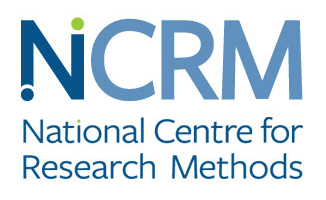
- This event has passed.
Introduction to Podcasting as Research
21st February 2023 - 6th March 2023

21 February and 6 March 2023
Introduction to Podcasting as Research – Online |
|
| Organised by | NCRM, University of Southampton |
| Presenter | Simone Eringfeld |
| Date | 21 February and 6 March 2023 |
| Venue | |
| Map | |
| Contact | Jacqui Thorp Training and Capacity Building Coordinator, National Centre for Research Methods, University of Southampton Email: [email protected] |
| Description | This online course will run over two mornings on Tuesday 21st February and Monday 6th March 2023, 10:00 – 12:30, and equates to one teaching day for payment purposes.
This training is designed for researchers and students who are interested in podcasting as a research practice, sonic method, and as effective means of communication and public engagement with research. No prior experience is required. This training explores the potential of podcasting as a creative, qualitative research method. While academics have already started to discover podcasting as an effective digital medium for research communication, podcasting can also be used as part of a creative research practice and methodology. In this training, which consists of two sessions of 2,5 hours each, we explore some of the ways in which podcasting can be used to this end. This firstly includes podcasting as a participatory action research method, with podcasts serving as public outward-facing platforms for collective action, reflection, and public engagement. Secondly, podcasting can be used as a sonic elicitation technique during interviews and focus groups to elicit rich, detailed, embodied, and affective responses from participants. Participants will have the opportunity to get hands-on experience with podcasting by creating their own ‘mini-podcast’ (1 short episode). The topic of this exercise can be related to the participant’s own current research practice, where desired and appropriate. For this introductory-level training, you do not require any prior experience with podcasting or other forms of audio production. The course covers: In this training, we will cover a range of topics related to podcasting in research contexts, from ethical considerations and methodological applications to the practice of podcasting itself. This includes the design and set-up of a podcast (such as genre, format, ‘branding’, and determining your target audience), practical approaches to audio recording, basic editing and (post-)production, and finally the distribution of episodes to public platforms such as Spotify and Apple Podcasts. By the end of the course participants will:
This course is aimed at students and researchers interested in podcasting as a research practice. Participants will need to sign up to the Anchor app for podcast production. Alternatively, participants may choose to work with software such as GarageBand (for more advanced editing options), but no previous experience with either of these two programmes is required. Programme Tuesday 21 February, 10:00 – 12:30 Session 1: – Introduction to podcasting as research method (PAR method, and podcast elicitation) – Ethics of podcasting, strengths and weaknesses of podcast methods – Demonstration of podcast production and instruction for hands-on assignment Monday 6 March, 10:00 – 12:30 Session 2: – Listening to excerpts of the mini-podcasts produced by the participants – Group discussion and feedback – Time for Q & A |
| Level | Entry (no or almost no prior knowledge) |
| Cost | The fee per teaching day is: • £30 per day for students registered at University. • £60 per day for staff at academic institutions, Research Councils researchers, public sector staff and staff at registered charity organisations and recognised research institutions. • £100 per day for all other participants |
| Website and registration | |
| Region | South East |
| Keywords | Data Visualisation, Sonic research methods, Podcasting, Sound-based methods, Podcast interviews, Podcast production |
| Related publications and presentations | Data Visualisation |
